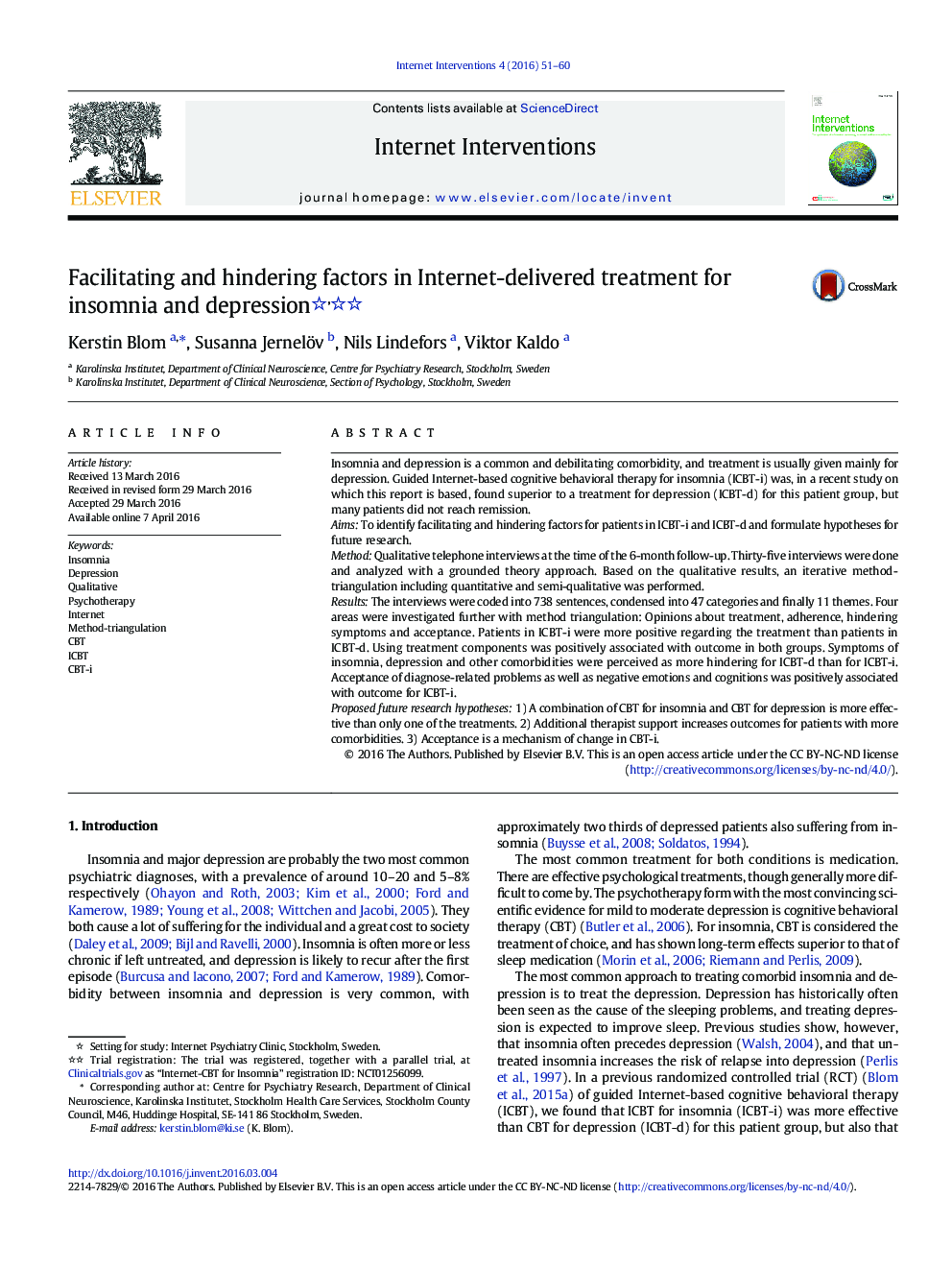| Article ID | Journal | Published Year | Pages | File Type |
|---|---|---|---|---|
| 554877 | Internet Interventions | 2016 | 10 Pages |
•We performed a qualitative study, interviewing 35 participants in an RCT of Internet-delivered CBT for insomnia or depression•Participants had comorbid insomnia and depression•Qualitative analyses were deepened with quantitative and semi-qualitative data•Participants in the insomnia treatment were more positive and less bothered by comorbid symptoms•The study generated hypotheses for future research: combination treatment, therapist support and acceptance as a mechanism
Insomnia and depression is a common and debilitating comorbidity, and treatment is usually given mainly for depression. Guided Internet-based cognitive behavioral therapy for insomnia (ICBT-i) was, in a recent study on which this report is based, found superior to a treatment for depression (ICBT-d) for this patient group, but many patients did not reach remission.AimsTo identify facilitating and hindering factors for patients in ICBT-i and ICBT-d and formulate hypotheses for future research.MethodQualitative telephone interviews at the time of the 6-month follow-up. Thirty-five interviews were done and analyzed with a grounded theory approach. Based on the qualitative results, an iterative method-triangulation including quantitative and semi-qualitative was performed.ResultsThe interviews were coded into 738 sentences, condensed into 47 categories and finally 11 themes. Four areas were investigated further with method triangulation: Opinions about treatment, adherence, hindering symptoms and acceptance. Patients in ICBT-i were more positive regarding the treatment than patients in ICBT-d. Using treatment components was positively associated with outcome in both groups. Symptoms of insomnia, depression and other comorbidities were perceived as more hindering for ICBT-d than for ICBT-i. Acceptance of diagnose-related problems as well as negative emotions and cognitions was positively associated with outcome for ICBT-i.Proposed future research hypotheses1) A combination of CBT for insomnia and CBT for depression is more effective than only one of the treatments. 2) Additional therapist support increases outcomes for patients with more comorbidities. 3) Acceptance is a mechanism of change in CBT-i.
